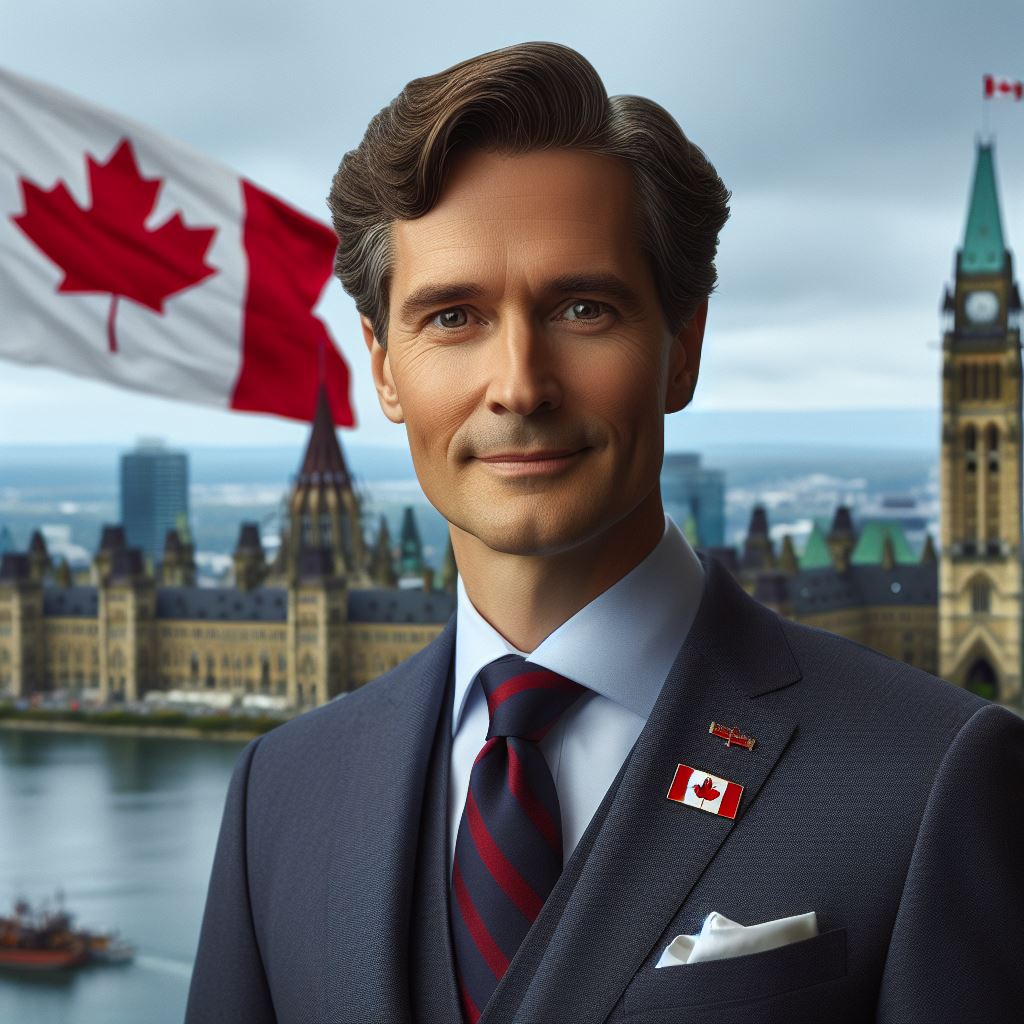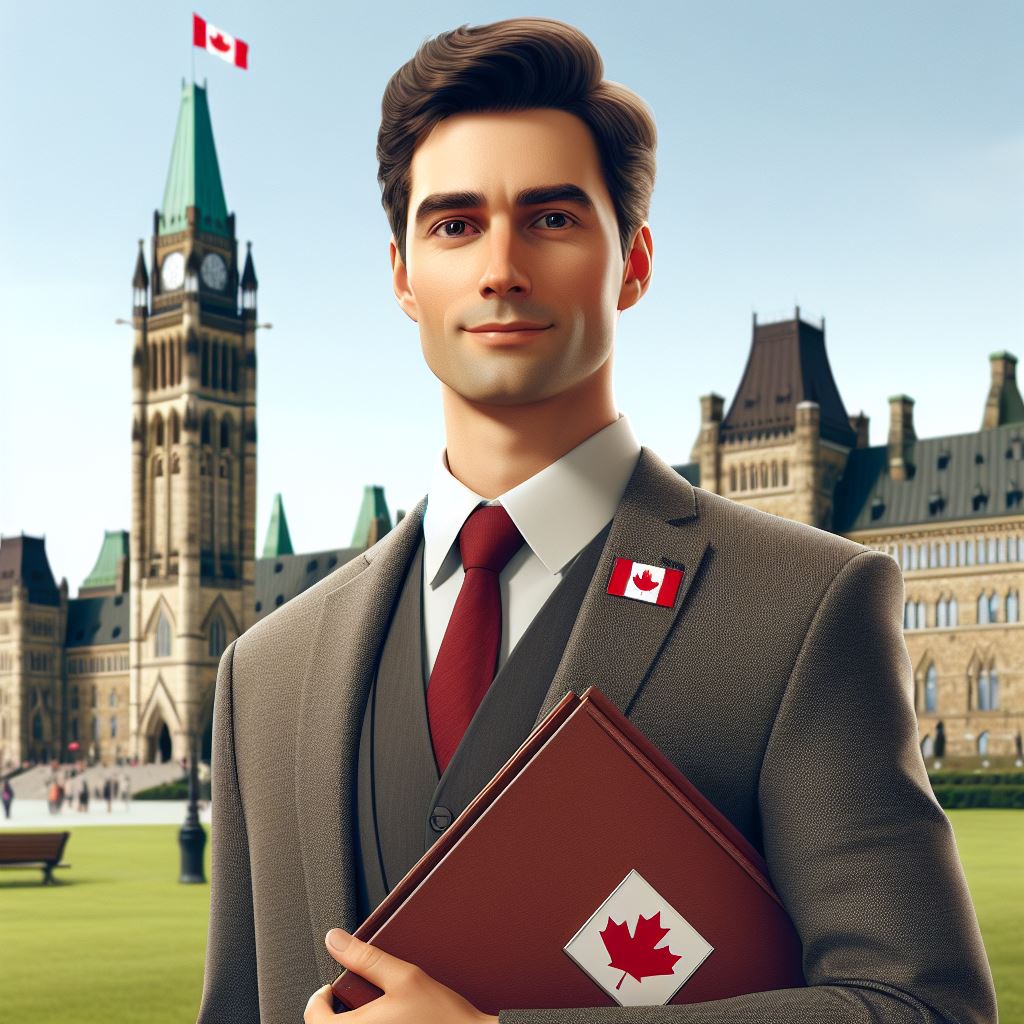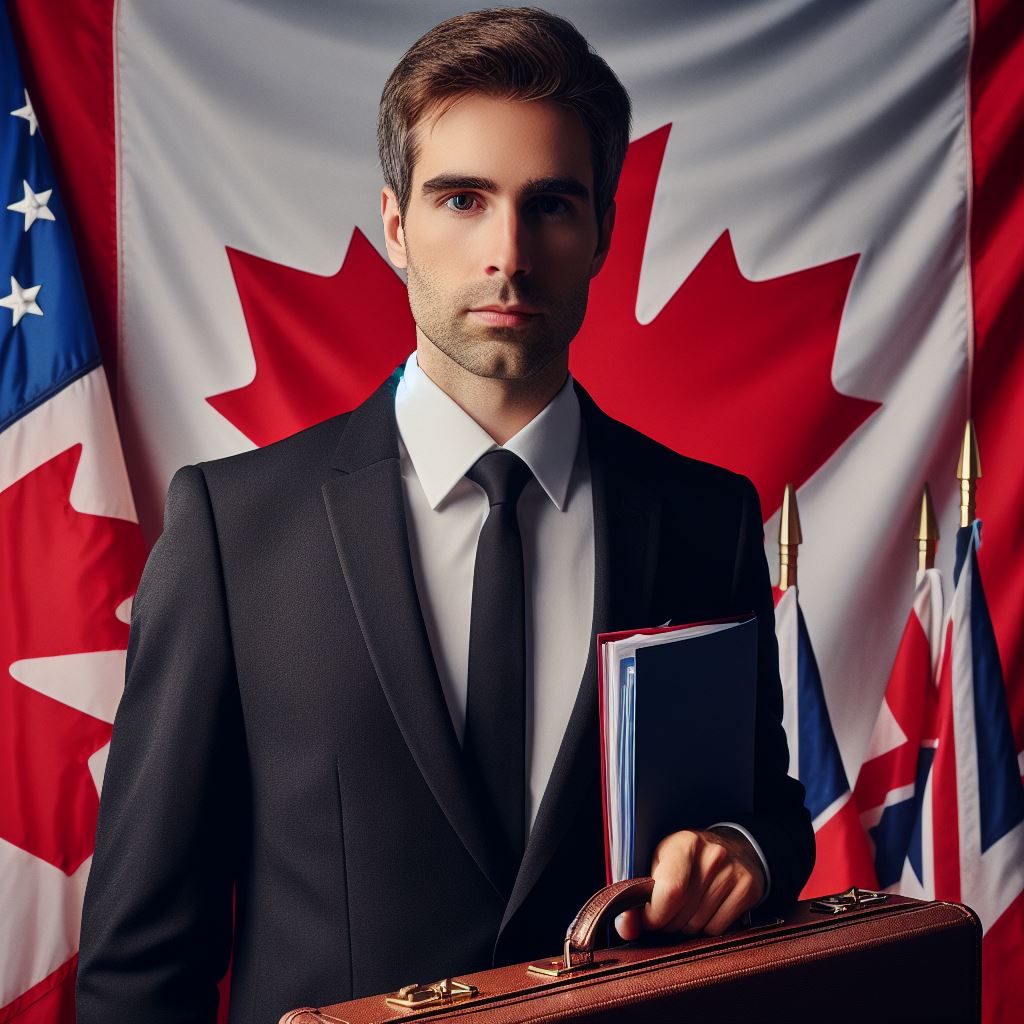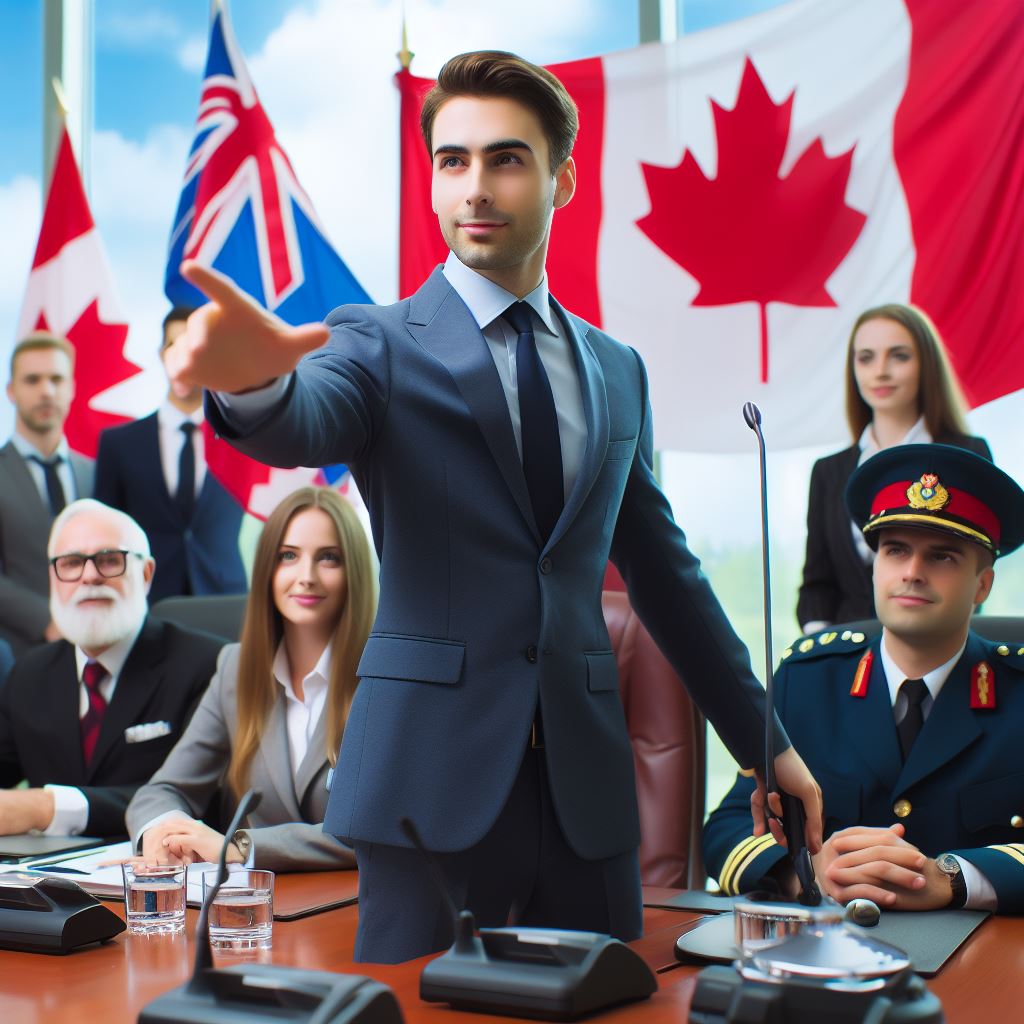Introduction
Canadian diplomats are representatives of Canada who promote its interests abroad.
Canadian diplomats play a crucial role in representing the country’s values and policies internationally.
The purpose of this blog post is to offer insights into the daily routine of a Canadian diplomat stationed abroad.
Step into the vibrant tapestry of diplomatic life as we unravel the nuanced chronicle of a day in the life of a Canadian diplomat abroad.
From the first light of dawn, where strategic briefings set the tone, to the intricate dance of navigating cultural landscapes, this narrative delves into the multifaceted world of international relations.
Traverse the challenges of bridging diverse perspectives during midday negotiations, and witness the personal and professional symbiosis that defines a diplomat’s existence.
Through evening receptions and beyond, explore the intricacies of fostering international cooperation while maintaining a Canadian identity.
Join us on this immersive journey as we paint a comprehensive portrait of the daily adventures, responsibilities, and cultural encounters that shape the diplomatic odyssey of a Canadian envoy stationed far from home.
Overview of Canadian Diplomatic Service
Background on the Canadian Foreign Service
- The Canadian Foreign Service is the country’s diplomatic corps.
- It represents Canada’s interests abroad and promotes its values and culture.
- Established in 1909, it is one of the oldest diplomatic services in the world.
- The service operates under the Ministry of Foreign Affairs.
Training and qualifications required to become a Canadian diplomat
- Becoming a Canadian diplomat requires a strong educational background.
- Applicants must hold at least a bachelor’s degree, usually in a related field.
- Language skills are crucial, with fluency in English and French being essential.
- Additional knowledge of other languages and cultures is highly advantageous.
- Candidates must also pass a rigorous selection process, including written exams and interviews.
Roles and responsibilities of Canadian diplomats
- Canadian diplomats serve in embassies, consulates, and high commissions around the world.
- They represent Canada’s interests and provide consular assistance to Canadian citizens.
- Diplomats engage in bilateral and multilateral negotiations to promote Canadian policies.
- They analyze foreign policies and developments, reporting back to the Canadian government.
- Diplomats foster relationships with foreign governments, businesses, and civil society organizations.
- They promote trade, investment, cultural exchanges, and cooperation in various sectors.
- Canadian diplomats also handle immigration and visa services for foreign nationals.
- They provide advice and support to Canadian businesses looking to expand internationally.
- Diplomats play a crucial role in managing Canada’s international relations and advancing its foreign policy goals.
In short, the Canadian diplomatic service plays a vital role in advancing Canada’s interests globally.
With a rich history dating back over a century, the diplomatic corps serves as Canada’s face to the world.
To become part of this esteemed service, individuals must possess a strong educational background, language skills, and cultural competence.
Canadian diplomats take on a wide range of responsibilities, from promoting trade and investment to providing consular assistance.
Through their efforts, they strengthen Canada’s relationships with other nations and contribute to the country’s international standing.
Read: The Art of Negotiation: A Diplomat Toolkit
Preparations for Living and Working Abroad
Assignment process and selection criteria
- The assignment process for Canadian diplomats abroad involves careful selection based on certain criteria.
- Diplomats are chosen based on their skills, qualifications, experience, and knowledge of the specific region.
- The selection criteria also consider language proficiency, as diplomats should be able to communicate effectively in their host country.
- The Canadian government aims to appoint diplomats who can represent the country’s interests abroad with excellence.
Language requirements
- Proficiency in the host country’s language is an essential requirement for Canadian diplomats working abroad.
- Language skills enable diplomats to engage effectively with local counterparts, understand cultural nuances, and navigate the diplomatic arena.
- Diplomats are provided language training and resources to enhance their linguistic abilities before deployment.
- Fluency in multiple languages is highly valued, promoting effective communication and productive diplomatic relations.
Briefing and orientation sessions for diplomats before deployment
- Diplomats receive extensive briefing and orientation sessions to prepare them for living and working abroad.
- These sessions cover topics such as the political, social, and cultural landscape of the host country.
- Diplomats learn about local customs, traditions, and diplomatic protocols to ensure smooth integration.
- They also receive guidance on diplomatic practices, crisis management, and handling sensitive situations.
Acquiring visa and diplomatic immunity
- Once selected, diplomats go through the process of acquiring the necessary visas to work in their host country.
- The Canadian government assists diplomats in obtaining the appropriate visas and permits.
- Diplomats are entitled to diplomatic immunity, which protects them from prosecution and allows them to fulfill their diplomatic duties without interference.
- This immunity extends to their families as well, ensuring their safety and uninterrupted service.
Preparing to live and work as a Canadian diplomat abroad involves a comprehensive process.
The assignment process carefully selects diplomats based on their skills and qualifications.
Proficiency in the host country’s language is a crucial requirement, enabling effective communication and understanding.
Briefing and orientation sessions familiarize diplomats with the host country’s political, social, and cultural landscape.
Lastly, diplomats acquire the necessary visas and enjoy diplomatic immunity, ensuring their safety and unobstructed diplomatic service.
These preparations cement the foundation for a successful experience as a Canadian diplomat abroad.
Read: Women in Diplomacy: Focus on Canada
Morning Routine
As a Canadian diplomat abroad, my daily routine is packed with various responsibilities and tasks that require my attention.
The morning routine sets the tone for the rest of the day and enables me to navigate the challenges and opportunities in the diplomatic world.
Waking up and starting the day
Each morning, I make it a point to wake up early, usually before sunrise.
This allows me to have some quiet time to myself and prepare for the long day ahead.
Unlock Your Career Potential
Visualize a clear path to success with our tailored Career Consulting service. Personalized insights in just 1-3 days.
Get StartedStarting the day early gives me a sense of accomplishment and ensures that I have enough time to complete all my tasks.
Physical exercise or meditation
After waking up, the first thing I do is either engage in physical exercise or practice meditation.
Engaging in physical exercise ensures that I stay fit and energized throughout the day.
It also helps me clear my mind and prepares me for the busy schedule ahead.
Alternatively, I find meditation techniques valuable in promoting mental clarity and reducing stress.
Reviewing emails and diplomatic cables
Once I feel refreshed and alert, I move on to one of the most critical aspects of my morning routine: reviewing emails and diplomatic cables.
As a diplomat, staying well-informed and up to date with the latest developments is vital.
I carefully read each email and cable, responding promptly when necessary and taking note of any urgent matters or important information that requires action.
Prioritizing tasks for the day
Following the review of emails and cables, it’s time to prioritize tasks for the day.
I assess each task based on its importance, urgency, and potential impact.
By strategically organizing my tasks, I optimize my time and ensure that I can properly address the most significant issues.
Breakfast and getting ready for work
With the tasks prioritized, I enjoy a nutritious breakfast to fuel my body and mind.
A well-balanced meal provides the energy I need for a demanding day, and it also offers the opportunity to recharge and reflect.
I use this time to plan my approach for the day and mentally prepare for any meetings or negotiations that may arise.
After breakfast, I focus on getting ready for work while ensuring that I am presentable and dressed appropriately for any official engagements.
This includes selecting my attire, checking necessary documents, and gathering any materials or equipment I may need throughout the day.
As I finish getting ready, I take a moment to mentally prepare myself for the challenges and responsibilities that come with representing Canada abroad.
I remind myself of the importance of diplomacy, cultural awareness, and achieving favorable outcomes that align with Canada’s interests.
With my morning routine completed, I am ready to face the day as a Canadian diplomat abroad.
The morning sets the foundation for my work, enabling me to tackle tasks, engage with colleagues and stakeholders effectively, and ensure that Canada’s voice continues to be heard on the international stage.
Read: Top Universities for Aspiring Policy Analysts
Work at the Embassy/Consulate
Office hours and location
The office hours of a Canadian diplomat abroad vary depending on the country and its business culture.
However, most embassies/consulates operate during regular business hours, from Monday to Friday.
The location of the embassy/consulate is usually in a central area of the city, close to government institutions and foreign diplomatic missions.
Collaborating with colleagues and superiors
Collaboration is crucial in the work of a Canadian diplomat abroad.
Diplomats often work in teams, coordinating efforts with colleagues to achieve shared goals.
Regular meetings, brainstorming sessions, and ongoing communication foster a sense of unity and efficiency in the workplace.
Superiors provide guidance, mentorship, and support to ensure the successful implementation of foreign policy objectives.
Representing Canadian interests in meetings and negotiations
One of the main responsibilities of a Canadian diplomat abroad is representing Canadian interests in meetings and negotiations.
They attend various official gatherings, including diplomatic receptions, bilateral meetings, and multilateral discussions.
Diplomats use their expertise and diplomatic skills to promote Canada’s position, advocate for Canadian citizens, and advance national interests.
Providing consular services to Canadian citizens abroad
Canadian diplomats provide consular services to Canadian citizens living, working, or traveling abroad.
These services include issuing passports, assisting with emergency situations, providing travel advice, and facilitating communication with local authorities.
Diplomats act as a lifeline for Canadians in distress, ensuring their well-being and safeguarding their rights while abroad.
Reporting and diplomatic reporting
Reporting is an essential part of a Canadian diplomat’s work.
Diplomats generate reports detailing political, economic, and social developments in the host country.
They analyze local situations, identify potential opportunities or challenges, and make recommendations for action.
Diplomatic reporting involves sharing information with colleagues, superiors, and relevant Canadian government departments to inform decision-making processes.
Read: Policy Analyst Salaries in Canada: An Overview
Lunch Break and Networking
Exploring local cuisine and cultural experiences
During my lunch break, I take the opportunity to immerse myself in the local culture by exploring the diverse cuisines available.
Whether it’s a traditional street food vendor or a trendy restaurant, I am always eager to try new dishes and flavors.
It not only satisfies my taste buds but also allows me to gain a deeper understanding of the local traditions and customs.
Attending diplomatic events and functions
Networking plays a vital role in my role as a Canadian diplomat abroad, and lunchtime presents the perfect opportunity to attend diplomatic events and functions.
These events bring together diplomats from various countries and provide a platform for exchanging ideas, establishing connections, and fostering international cooperation.
Building and maintaining these relationships is essential for my diplomatic career.
Meeting with local officials and networking opportunities
In addition to attending diplomatic events, I often use my lunch break to arrange meetings with local officials or representatives from various organizations.
These meetings allow me to discuss matters of mutual interest, explore areas of cooperation, and enhance the bilateral relations between Canada and the host country.
It is through such networking opportunities that I can effectively represent Canada’s interests and contribute to its diplomatic goals.
Maintaining relationships with fellow diplomats from other countries
As a Canadian diplomat abroad, I recognize the importance of establishing and maintaining relationships not only with local officials but also with fellow diplomats from other countries.
During my lunch break, I make an effort to connect with diplomats from different nations, exchanging insights, experiences, and perspectives.
This cross-cultural exchange not only broadens my horizons but also strengthens diplomatic ties, fostering a spirit of collaboration and mutual understanding.
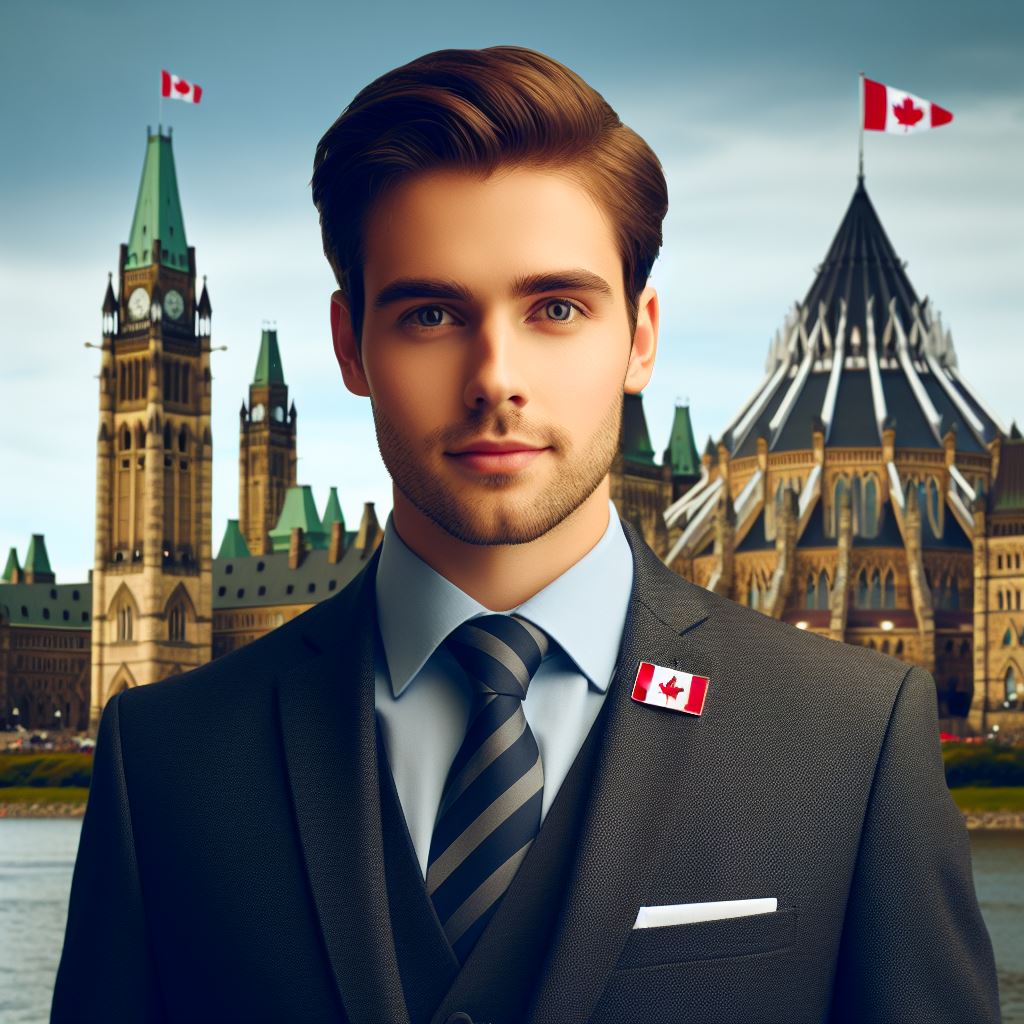
Afternoon Tasks
In the afternoon, Canadian diplomats abroad undertake a range of important tasks to fulfill their diplomatic duties.
These tasks contribute to building strong relationships with host countries and promote bilateral cooperation.
Continuing work on ongoing projects and initiatives
Continuing work on ongoing projects and initiatives allows diplomats to maintain progress and achieve objectives effectively.
By collaborating with team members, they can ensure that projects are moving forward and will ultimately benefit both Canada and the host country.
Meeting with local partners and stakeholders
Meetings with local partners and stakeholders are crucial for maintaining diplomatic ties.
Diplomats engage in productive discussions to explore opportunities for collaboration and address mutual concerns.
By fostering these relationships, Canadian diplomats can strengthen bilateral bonds and promote Canada’s interests abroad.
Researching and preparing diplomatic briefings
Researching and preparing diplomatic briefings is vital for diplomats to stay well-informed about the political and socio-economic landscape of the host country.
By conducting thorough research and analysis, diplomats can provide comprehensive information to Canadian authorities.
This enables informed decision-making and helps shape Canada’s diplomatic priorities.
Handling administrative tasks and paperwork
Handling administrative tasks and paperwork is an integral part of a diplomat’s routine.
By effectively managing administrative responsibilities, diplomats ensure smooth operations and maintain proper documentation.
This includes organizing documents, processing official correspondences, and coordinating logistics for various diplomatic activities.
Overall, afternoon tasks are essential for Canadian diplomats to fulfill their roles effectively.
Through these activities, diplomats contribute to advancing bilateral relations, promoting Canada’s interests, and maintaining strong diplomatic ties with the host country.
Evening Routine
Wrapping up work for the day
- After a long day of diplomatic duties, it is time to finish up work and tie loose ends.
- I go through my emails and respond to urgent messages before closing my laptop.
- Checking my calendar for the next day’s appointments, I make sure I am prepared.
- Tasks accomplished and files organized, I head to the staff lounge for a much-needed break.
Socializing with colleagues or attending diplomatic receptions
- Engaging with fellow diplomats is essential for networking and building strong relationships.
- I join my colleagues for a drink or two at the local bar, exchanging stories and experiences.
- Attending diplomatic receptions hosted by the embassy or other diplomatic missions is also common.
- This gives us the opportunity to mingle with foreign diplomats and strengthen international ties.
Exploring the local city or engaging in cultural activities
- Being in a foreign country, I take advantage of every opportunity to immerse myself in its culture.
- After work, I explore the local city, visiting famous landmarks and hidden gems.
- I love trying local cuisine, attending theater performances, and visiting art galleries.
- Engaging in cultural activities helps me gain a deeper understanding of the host country.
Dinner and relaxation time
- By the time evening comes, I am ready to unwind and recharge for the next day.
- I prefer trying out local restaurants, indulging in the flavors and dishes of the host country.
- However, sometimes I crave the taste of home and opt for international cuisine as well.
- After a satisfying meal, I return to my accommodation for some relaxation time.
- Whether it’s reading a book, watching a movie, or practicing meditation, I find solace in these moments.
In brief, the evening routine of a Canadian diplomat abroad is a blend of work, socialization, exploration, and relaxation.
Wrapping up work, socializing with colleagues, exploring the local city, and enjoying dinner and relaxation time are important aspects of the daily life of a diplomat.
Challenges and Rewards of Being a Canadian Diplomat Abroad
Dealing with the pressure of representing Canada
- Representing Canada as a diplomat abroad entails a great deal of pressure and responsibility.
- Canadian diplomats have the task of representing their country’s interests and values on an international stage.
- They must ensure that their actions and statements reflect Canada’s stance on various global issues.
- Being the face of Canada in foreign countries means they must always conduct themselves with professionalism and diplomacy.
- The pressure to accurately convey Canada’s position on complex global matters can be challenging.
Adapting to different cultures, languages, and customs
- One of the biggest challenges for Canadian diplomats abroad is adapting to different cultural norms and practices.
- They must familiarize themselves with local languages and customs to effectively communicate and build relationships.
- Adapting to a new cultural environment requires openness, flexibility, and a willingness to learn and understand.
- Understanding cultural differences is crucial in avoiding misunderstandings and building trust with local communities.
- Canadian diplomats must find common ground while also respecting and appreciating the differences of other cultures.
Professional growth and personal development opportunities
- Working as a Canadian diplomat abroad offers numerous opportunities for professional growth and personal development.
- Diplomats have the chance to gain a deep understanding of international relations and global issues.
- They are exposed to diverse perspectives, which broadens their worldview and enhances their problem-solving skills.
- Living and working in different countries allows diplomats to develop cross-cultural communication and negotiation skills.
- These experiences contribute to their personal growth, making them more adaptable and resilient individuals.
Building international relationships and promoting Canadian values
- A primary role of Canadian diplomats abroad is to foster and build relationships with individuals, organizations, and governments.
- By engaging in diplomatic activities, they work towards promoting Canadian values such as democracy, human rights, and sustainability.
- Building strong international partnerships is essential for advancing Canadian interests and creating opportunities for collaboration.
- Promoting Canadian values abroad reinforces Canada’s positive image and influence in the global arena.
- Through dialogue and cooperation, Canadian diplomats play a vital role in advancing peace, security, and prosperity worldwide.
Being a Canadian diplomat abroad is both challenging and rewarding.
The pressure to represent Canada accurately and effectively necessitates professionalism and diplomacy.
Adapting to different cultures and customs requires openness and understanding, while also promoting personal growth.
Building international relationships and promoting Canadian values contribute to advancing Canadian interests globally.
Despite the challenges, being a Canadian diplomat offers unique opportunities for personal and professional development.
Conclusion
Being a Canadian diplomat abroad is an exciting and challenging career. Each day presents unique tasks and responsibilities.
These include attending meetings, engaging in negotiations, and promoting Canadian interests.
Diplomats also have to deal with administrative duties and staying up to date with political developments back home.
It is a fast-paced job that requires adaptability and excellent communication skills.
Overall, a day in the life of a Canadian diplomat abroad is filled with interactions and activities that contribute to strengthening Canada’s relationships with other nations.
The work of Canadian diplomats abroad plays a crucial role in advancing Canada’s interests globally.
They represent the country’s values, beliefs, and policies, fostering international relations and promoting cooperation.
By engaging with foreign governments, diplomats work towards resolving conflicts, advocating for human rights, and addressing global issues like climate change and security threats.
They serve as a bridge between Canada and the world, building trust and understanding that ultimately benefits both the nation and its citizens.
For individuals interested in pursuing a career in the Canadian Diplomatic Service, the rewards are immense.
The opportunity to travel, immerse in different cultures, and participate in important international discussions is unparalleled.
The work allows individuals to make meaningful contributions to global affairs and shape Canada’s role on the international stage.
Diplomats gain valuable skills in diplomacy, negotiation, and foreign policy, making it a fulfilling and intellectually stimulating profession.
If you have a passion for diplomacy and a desire to represent Canada, a career in the Canadian Diplomatic Service may be the perfect fit for you!

